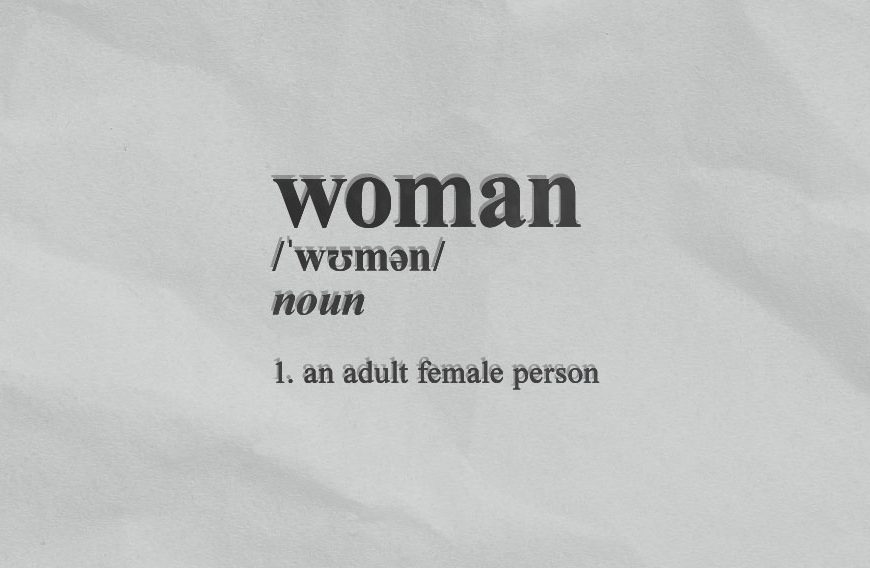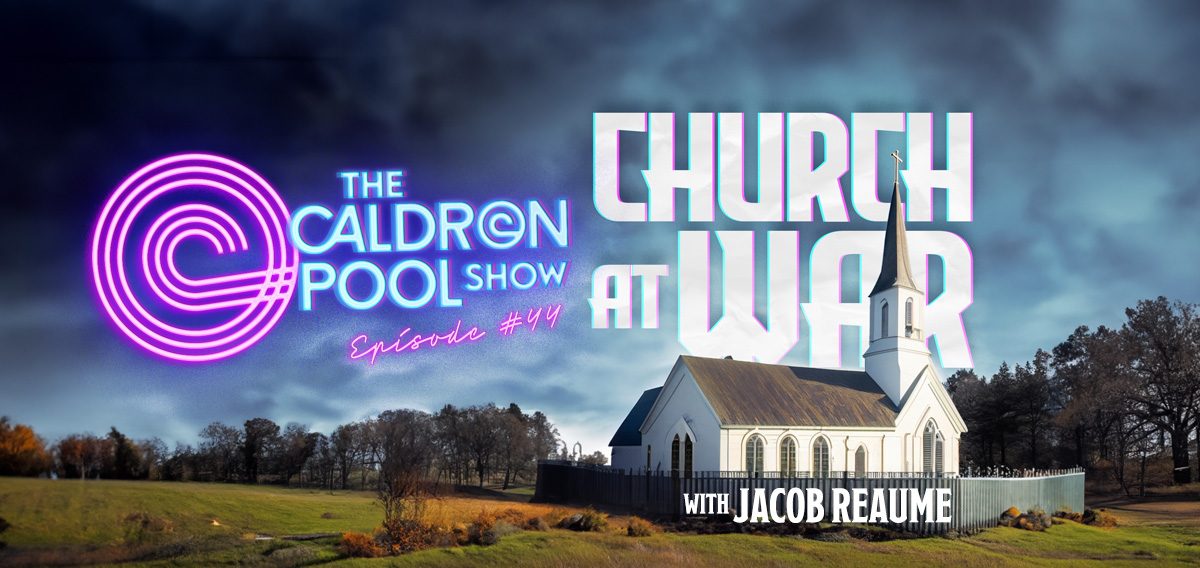Last week I shared a short post about how individualism is the society killer, in which I said this, “Individualism is the society killer. It is the seed of death that sprouts into many other forms of death for a people. It must be rejected. We must overcome this scourge.”
If you are very familiar with your science fiction you will know that I was riffing off the famous quote from Frank Herberts Dune, “I must not fear. Fear is the mind-killer. Fear is the little death that brings total obliteration. I will face my fear.”[1] I wrote it this way, because individualism is as poisonous for society as fear is for the individual.
Of course, not everyone agrees with this, particularly in the West, where individualism, along with equality, and democracy are considered the highest possible ideas. And so my short post got some pushback,
“Individualism has bred this loneliness culture in the modern West.” I totally and wholeheartedly disagree. Have you ever considered what the opposite of individualism is? I’ll tell you; it’s totalitarianism. Totalitarianism is where the individual is subservient to the group. Individualism is where the group supports and encourages the individual. It’s got nothing to do with loneliness. So what causes loneliness? In general terms it’s caused by the individual turning away from the group, turning away through selfishness, narcissism or being outcast from the group. Whatever else, the point I am trying to make here is that individualism is a good thing, both for the individual and for society in general.”
I want to respond to this in some more depth and expand on my post. I have written about it in other contexts before, but I think it is helpful to explain why individualism is so poisonous for society. But first I want to define a couple of terms.
Individualism can be defined as, “the habit or principle of being independent and self-reliant: “a culture that celebrates individualism and wealth”, or it could be defined as such, “a social theory favouring freedom of action for individuals over collective or state control: “encouragement has been given to individualism, free enterprise, and the pursuit of profit.”[3] I would define it simply as the emphasizing of the rights of the individual over the collective.
What this person has here called totalitarianism, I would refer to as collectivism. Collectivism as this person has said is where “the individual is subservient to the group” or as Bing defines it, “the practice or principle of giving a group priority over each individual in it: “the Church has criticized the great emphasis placed on individualism rather than collectivism.”[4]
For the last few decades, or a little more, individualism has been one of the core tenets of the West, particularly the United States. As one media commentator I heard once put it, “We must radically assert the rights of the individual, the individual is supreme.” Some version of that statement has been declared often in Western media and intellectual thought for some time. That same idea has been repeated again and again as one of the reasons for the success of the West over the collectivist East…and therein lies a clue to one of its core problems. Because the West is no longer, according to many metrics, outpacing the East. And individualism is one of the reasons this is happening.
Whatever people’s current ideas about individualism are, the history of this push in society is well documented. For instance, those who today assert the importance of individualism likely are not aware that the push for “individuality” or what we today call “individualism” was advanced by early socialists in their fight against the family and the church. This kind of thinking can even be traced back to seminal works such as Milton’s Paradise Lost,
“The totality of the serpent’s compliments and such words from the narrator indicates, as C. A. Patrides points out, that Eve is ‘prejudiced toward Satan’s arguments’ and ‘partly fallen before she actually ate the forbidden fruit’, being naturally disposed towards an inappropriate longing for autonomy and self-apotheosis. Northrop Frye, the influential scholar of literature, more sympathetically comments: ‘What he [Satan] says thereby instils in her the notion of her own individuality, somebody in her own right, herself and not merely an appendage to Adam or to God.’”[5]
Whether or not Milton was speaking favourably of Eve’s attitude here is up for debate. What is not debatable is that later socialists and egalitarian activists in the 18th and 19th centuries saw in Eve the embodiment of the oppressed individual who was seeking freedom from her oppressors; namely God and her husband Adam. Individualism was seen as both a sword with which to strike against the Church and the family, and also as a socialist ideal.
The 19th-century socialist magazine Lucifer[6], dedicated itself to promoting individualism to inspire feminists to work for autonomy, rather than to continue to rely on the provision of their husbands,
“… Lucifer’s work is mainly to preach the gospel of discontent to women, to the mothers and prospective mothers of the human race. As yet the great masses of women are not awake to the fact that they are slaves—not conscious of their own degradation as individual human beings.”[7]
What the socialists refer to here as slavery was actually what most people just called marriage. Where a man and woman come together before God, to work together for a common good, where the husband provides and the woman keeps the home. Socialists have and still do call this slavery. Their solution to this was to find ways to allow the easy breaking up of the family.
Per Faxneld in his book Satanic Feminism: Lucifer as the Liberator of Woman in Nineteenth-Century Culture goes to great lengths in his PhD thesis turned research book, to show how individual expression was a key component of the socialist movements that inspired the suffragettes and other early socialists in their activism against the Church and the family in the West. I share this here to show how powerfully the tool of individualism was used to break the most important bonds of Western society, the Church and the family. Many conservatives are not aware of this, because we live in the world that the socialist victors created, and often today socialism is seen as synonymous with collectivism. This was not always the case, and still today many socialists focus on advocating for “individual rights”.
The truth is that collectivism and individualism are two extremes that socialists have made use of in history to bring great harm to society. Many conservatives see these things as the only two options, as is noted above, “Have you ever considered what the opposite of individualism is? I’ll tell you; it’s totalitarianism. Totalitarianism is where the individual is subservient to the group. Individualism is where the group supports and encourages the individual.” Notice here that this commentator has made a common assertion: there is a dichotomy, individualism versus totalitarianism (collectivism), and therefore individualism is good because it is good versus bad. But not only are there not just two choices, the dichotomy between individualism and collectivism is a bit of a false choice.
A society where all the bonds of relationships have been broken down, that is atomized, which individualism achieves, is a society that is ripe for the authoritarian to swoop in and take control over. Individualism places the emphasis on the individual over any group. The poisonous nature of this ideology can be seen if you look at it in the context of the family. Individualism says that the woman is more important than the marriage, or the husband is more important than the family. Therefore, the individual man or woman must have the right to leave the family at any time that they determine that there is something better for them outside of the family. This kind of thinking was anathema in the Christian West, but it is absolute dogma in our individualistic world and it just happened to be the individualists of the 19th century, the feminists and socialists, who were responsible for this change of trajectory. So, however, you want to understand it today, this is how it was conceived of in its early beginnings. And how it empowers the growth of the state to lord over the individual should be obvious.
A society where families fracture is one where disorder increases and the large hand of the law must increase to compensate. The primary role of the state is order and it only knows how to do this through force. The more children living out of wedlock, the more pressure there is from women voters for the government to ‘do something’, hence welfare increases, which increases the power of the state in turn again. This cycle has been undermining individual liberty in the West for well over a century, ironically in the name of individualism.
Great thinkers in history have observed this before I came along. G.K. Chesterton, who was not a socialist, observed how the destruction of the family led to tyranny in his booklet The Superstition of Divorce.
The modern rulers, who are simply the rich men, are really quite consistent in their attitude to the poor man. It is the same spirit that takes away his children under the pretence of order, which takes away his wife under the pretence of liberty. That which wishes, in the words of the comic song, to break up the happy home, is primarily anxious not to break up the much more unhappy factory. Capitalism, of course, is at war with the family, for the same reason which has led to its being at war with the Trade Union. This indeed is the only sense in which it is true that capitalism is connected with individualism. Capitalism believes in collectivism for itself and individualism for its enemies. It desires its victims to be individuals, or (in other words) to be atoms. For the word atom, in its clearest meaning (which is none too clear) might be translated as “individual.” If there be any bond, if there be any brotherhood, if there be any class loyalty or domestic discipline, by which the poor can help the poor, these emancipators will certainly strive to loosen that bond or lift that discipline in the most liberal fashion. If there is such a brotherhood, these individualists will redistribute it in the form of individuals; or in other words, smash it to atoms.
The masters of modern plutocracy know what they are about. They are making no mistake; they can be cleared of the slander of inconsistency. A very profound and precise instinct has led them to single out the human household as the chief obstacle to their inhuman progress. Without the family, we are helpless before the State, which in our modern case is the Servile State. To use a military metaphor, the family is the only formation in which the charge of the rich can be repulsed. It is a force that forms twos as soldiers form fours; and, in every peasant country, has stood in the square house or the square plot of land as infantry have stood in squares against cavalry. How this force operates, and why, I will try to explain in the last of these articles. But it is when it is most nearly ridden down by the horsemen of pride and privilege, as in Poland or Ireland, when the battle grows most desperate and the hope most dark, that men begin to understand why that wild oath in its beginnings was flung beyond the bonds of the world; and what would seem as passing as a vision is made permanent as a vow.”[8]
What Chesterton calls ‘capitalism’ in this passage here today we might call ‘corporatism’, that is when wealthy oligarchs and business moguls use their inordinate wealth to buy off the government lawmakers to pass laws that favour their particular business or industry. In this case, he was referring to how the wealthy classes were using their money to influence divorce laws which would make divorce far easier in England, and therefore, create more workers which they could exploit in their factories. You can read the rest of his pamphlet if you wish to understand his argument and context more deeply.
But what he observes here is powerful for our purposes: the authoritarian state, which is happy to align with the richest businessmen (today it would be big tech and pharma) wants people to be broken into atomized units because atomized units are easier to oppress under collectivist and totalitarian rules. Chesterton is observing how individualism is often promoted by the powerful for cynical rather than noble reasons. Individuals are weaker than family units. Individuals have less inherent strength than families and are therefore pushed around more easily. Family, however, is powerful, as Chesterton said,
“To use a military metaphor, the family is the only formation in which the charge of the rich can be repulsed. It is a force that forms twos as soldiers form fours; and, in every peasant country, has stood in the square house or the square plot of land as infantry has stood in squares against cavalry.”
Individualism is not just the opposite of collectivism, it is also a stage towards collectivism. Atomization leads to a weakened society that can be pushed around. Individualism creates a weakened society which is much more prone to the attacks of collectivist dictators. It is not an accident that the false promises of Karl Marx were most attractive to the kinds of workers being exploited by the laws Chesterton was opposing. The families weakened and broken up by the attacks of corporations taking over the government and passing anti-family laws are the people who are most likely to find solace in the promises of a big state that says it will fight the “capitalists”.
This shows that it is not a choice between individualism and collectivism, it is a choice between family and two other very bad choices. Family is meant to be the basic building block of society for a reason. God said it is not good for man to be alone, because man was not created to live on his own, but with a helper (Gen. 2:18). Human beings are also not meant to find their identity in and of themselves, but in relation to their God and their family. We are, those who believe at least, sons and daughters of God, heirs of Christ. We all are in relation to our family; sons or daughters, fathers or mothers, sisters or brothers, uncles or aunties, etc, etc. Our identity is not something that is found in and of itself but in our relation to our creator and those whom he created us to live with and amongst. A man is a man, and a woman, is a woman, but we have seen in our society today that when being a man and a woman is disconnected from the function of what a man and a woman are, it becomes corrupted and then redefined as whatever the individual likes to make of it. Which is a grievous error and terrible evil.
God designed us to live in families for a reason. And for those who are not able to create their own literal family, he has provided the church, wherein we have spiritual fathers and mothers and brothers and sisters etc. These twin bulwarks of the family and the Church are intended to be the basic building blocks of society within which the individual finds their most important expression and identity and in which the twin evils of individualism and collectivism are opposed.
So, there is not just two choices. And individualism is not the force for good that we have often been told it is. And can you not see this in our society today? The fruit of individualism is all around us, and the rising creep of totalitarian collectivism is increasingly revealing itself. God warned us that it is not good for man to be alone, to think he is self-reliant, that he can define himself apart from family and the church community. We have not heeded this warning in the West and many social ills are the result.
[1] https://www.goodreads.com/work/quotes/3634639-dune
[2] https://goodsauce.news/individualism-is-the-society-killer/
[5] Faxneld, Per. Satanic Feminism: Lucifer as the Liberator of Woman in Nineteenth-Century Culture (Oxford Studies in Western Esotericism) (p. 42). Oxford University Press. Kindle Edition.
[6] Yes, the magazine was named for the spiritual being the Bible calls Lucifer or the Devil, but in socialist thought he was reframed as the light-bearer who brought enlightenment to mankind. This was a direct subversion of the biblical idea of lucifer being a deceiver.
[7] Faxneld, Per. Satanic Feminism: Lucifer as the Liberator of Woman in Nineteenth-Century Culture (Oxford Studies in Western Esotericism) (p. 104). Oxford University Press. Kindle Edition.
[8] Chesterton, Gilbert Keith. The Superstition of Divorce (pp. 21-22). Jazzybee Verlag. Kindle Edition.


















